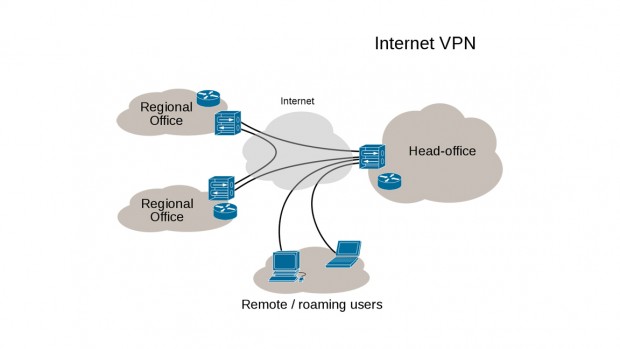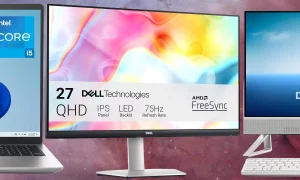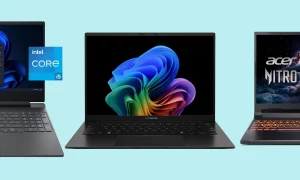VPNs explained: What is a VPN and why are they so controversial?

Virtual private networks, more commonly known as VPNs, have a shady reputation but the best VPNs are incredibly safe and commonplace tools that help you make the most of the web. Some people wouldn’t dream of using the internet without masking what they’re up to.
However, the Russian and Chinese governments don’t approve. Russian president Vladimir Putin recently passed a law making VPNs illegal. The law comes into effect on 1 November and has been created to “prohibit access to illegal content”. The Russian government said the law is not targeted at “introducing new bans for law-abiding citizens.” Earlier in July, Apple pulled a number of VPNs from the App Store in China to comply with local laws. The tech giant did not confirm how many had been removed (although the figure is believed to be around 60), and the exact reasons why, but a number of legal VPN apps are still available at the time of writing.
But what is a VPN and how do they work? How do you know if you should be using one and is it worth paying to protect your privacy? Here’s everything you need to know before you start using a VPN.
What is a VPN?
At their most simple, VPNs allow you to hide your IP address (the code that uniquely identifies your web connection) and their benefits range from protecting your privacy and online identity to bypassing geofilters. In particular, VPNs are handy for circumventing region-locked content, such as watching American Netflix while in the UK, or watching BBC iPlayer when abroad – although many companies are now savvy enough to block against known VPN addresses.
More technically, a VPN is a network of computers securely connected to each other via the internet. This network lets all its users connect and transfer data to one another without the prying eyes of would-be hackers and internet snoops.
How does a VPN work?
A VPN works by connecting two or more computers together via a secure, encrypted connection across the internet. Paid-for VPN services, such as Buffered, can also mask your IP address, meaning you’re harder to track down than if you used a free VPN such as CyberGhost.
The process of connecting to a VPN is incredibly simple. First, connect to the internet via your ISP, and then initiate a VPN by using a client, or connecting to a specific server your company might be using. There are also various security systems that VPNs use, of which you can find a complete rundown on Wikipedia, but the most common is a Secure Shell (SSH) connection.
SSH connections are used to circumvent government content filters, such as the block on YouTube and Twitter in Tehran. SSH connections are also useful for accessing American Netflix and HBO Go services, as they mask your IP address in the process.
When should I use a VPN?
VPNs have various uses. Every company should be using a VPN, but many individuals also feel the need to protect their personal data by using one when browsing the web from their phone or computer. Some routers allow you to set up a VPN directly on your entire network, meaning any device you use on that network is secured – saving you from having to use one on your device every time you plan to access the internet.
Many use VPNs because they don’t want their online activities tracked. That, understandably, sounds rather dodgy – especially as there are legitimate concerns over a VPN’s ability to let you carry out nefarious activities online without being traced. But, for the most part, you’ll probably be using a VPN to watch region-restricted content.
Types of VPN
As the name suggests, remote-access VPNs let individual users establish secure connections on a remote computer network. The users don’t need to be directly plugged into the specific network’s servers. Many companies with remote workers, or people who travel a lot, typically use remote-access VPNs.
By contrast, a site-to-site VPN lets offices in various locations establish secure connections with each other over a public network, such as the internet. Intranet sites, accessed when outside the office, are examples of services available on site-to-site VPNs. Alternatively, if a company has links with external firms, such as suppliers, an extranet VPN will let them work together in a secure, shared network while preventing access to their separate intranets.
Free VPN versus paid-for
VPNs come in two flavours: paid-for and free. Free VPNs may sound ideal for a one- or two-time use to view inaccessible content, but the benefits of a paid service such as Buffered certainly outweigh those of a free client.
VPNs cost money to run, so alarm bells should be ringing when you see a VPN service being offered for free. Not only are free services inherently slower and less secure, and typically fail to mask your IP address, they also carry serious dangers such as the sale of your information and hijacking of your internet bandwidth and IP address. By making use of your own computer’s address, these free VPNs can allow other users to perform illegal activities while using your location.
A paid-for VPN, however, offers up more security and a promise that it won’t sell your information or use your bandwidth for others as it uses your subscription to pay for its services instead. You’ll also find that your connection runs faster, doesn’t drop out and your IP address is masked. Paid services don’t even cost that much either, starting at around £20 per year.
Where can I get a VPN from?
Searching for “best VPN” or “VPN download”, or really any search that contains “VPN”, always brings up a slew of ad-supported VPN download links. You should not click on those when looking to download a VPN. Your best bet, when searching for a VPN, is to go directly to a trusted client or download source. Google Play and the Apple App Store both offer up a wide selection of free and paid-for VPN clients for mobile devices.
We also have a list of the best VPNs to help guide you.












